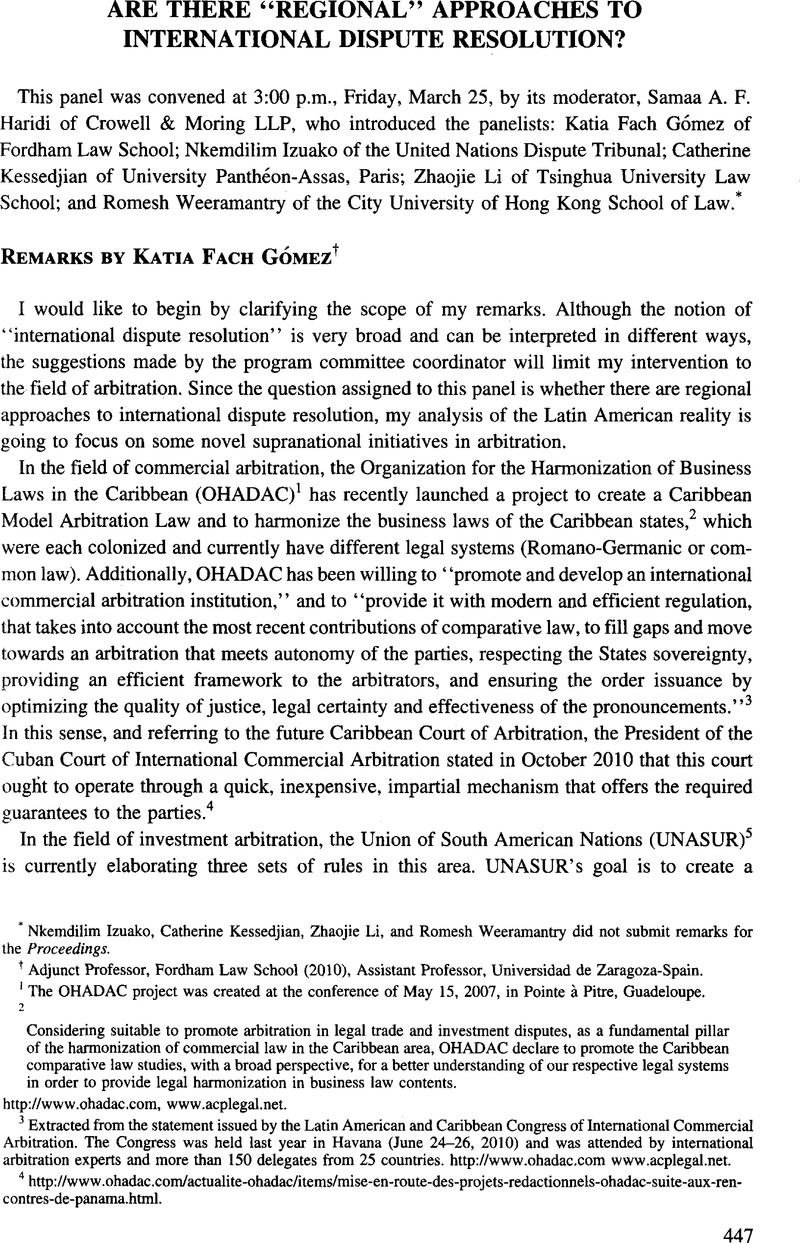No CrossRef data available.
Published online by Cambridge University Press: 28 February 2017

1 The OHADAC project was created at the conference of May 15, 2007, in Pointe à Pitre, Guadeloupe.
2
Considering suitable to promote arbitration in legal trade and investment disputes, as a fundamental pillar of the harmonization of commercial law in the Caribbean area, Ohadac declare to promote the Caribbean comparative law studies, with a broad perspective, for a better understanding of our respective legal systems in order to provide legal harmonization in business law contents.
3 Extracted from the statement issued by the Latin American and Caribbean Congress of International Commercial Arbitration. The Congress was held last year in Havana (June 24—26, 2010) and was attended by international arbitration experts and more than 150 delegates from 25 countries, http://www.ohadac.com www.acplegal.net.
5 UNASUR is a supranational union aiming to strengthen South American integration. Its members are the following South American countries: Bolivia, Colombia, Ecuador, and Peru (countries that are also members of the Andean Community of Nations, or Can), plus Argentina, Brazil, Paraguay, and Uruguay (countries that are also members of Mercosur), plus Chile, Guyana, Suriname, and Venezuela. Unasur’s constitutive treaty was signed on May 23, 2008, and entered into force on March 11, 2011. http://www.pptunasur.com/.
6 I thank the Ecuadorian delegation to Unasur for giving me access to these working papers in February 2011.
7 For example, see the recent WTO Director-General Pascal Lamy’s reflections:
My third and last suggestion would be to further encourage and pay greater attention to regional integration processes, which permit a progressive familiarization with supra-nationality. Regional integration allows us to address the questions of our time at a level where the affectio societatis is stronger. At a level where the feeling of belonging is more solid. For there is no governance without such feeling. Regional integration represents the essential intermediate step between the national and the global governance level.
WTO Director-Gen. Pascal Lamy, Address to the European University Institute, Florence (Feb. 18, 2011), available at http://www.wto.org/english/news_e/sppl_e/sppl187_e.htm.